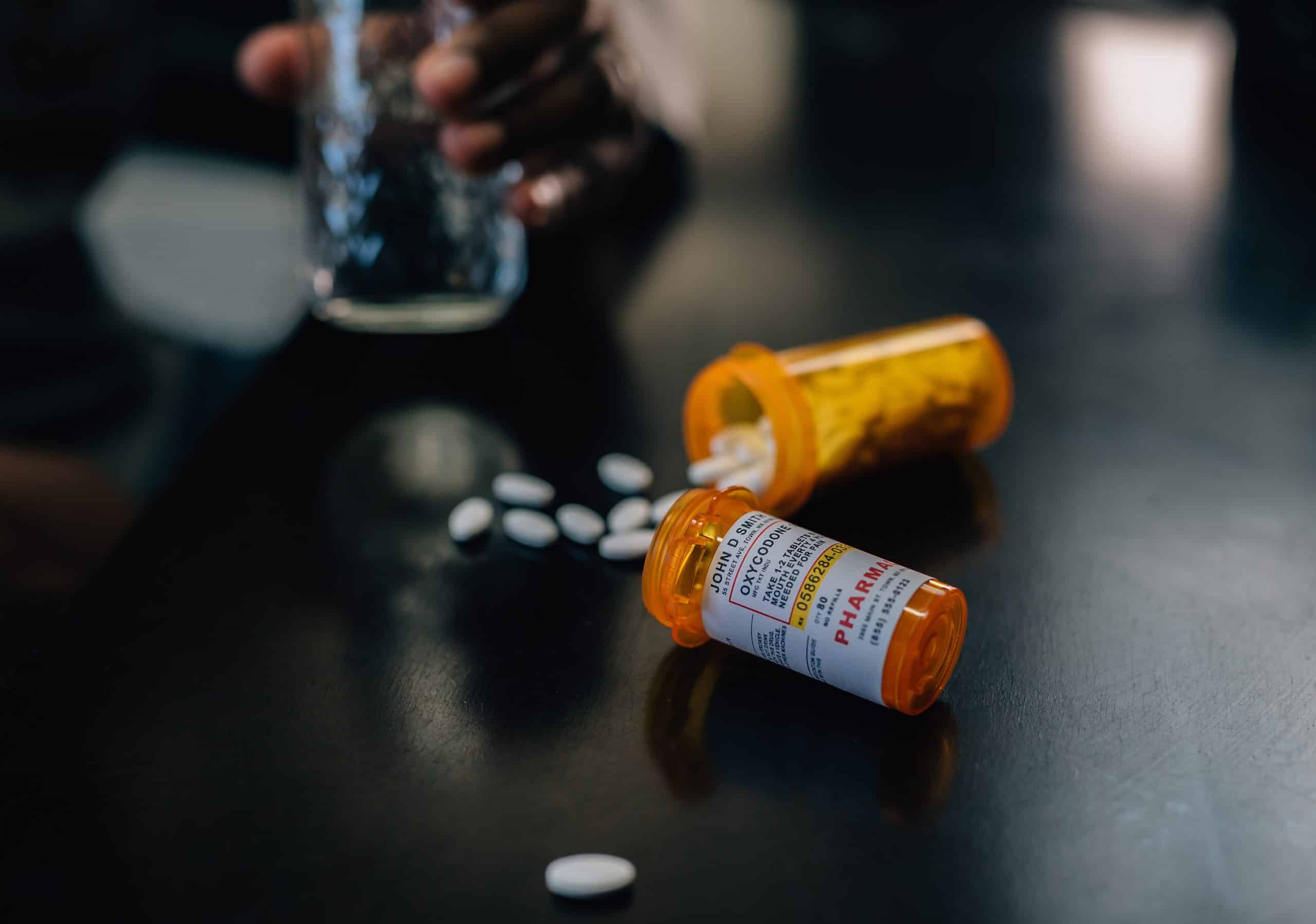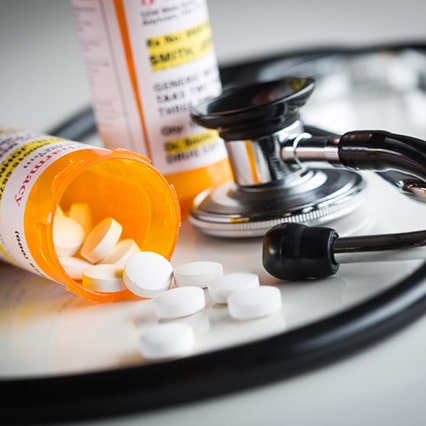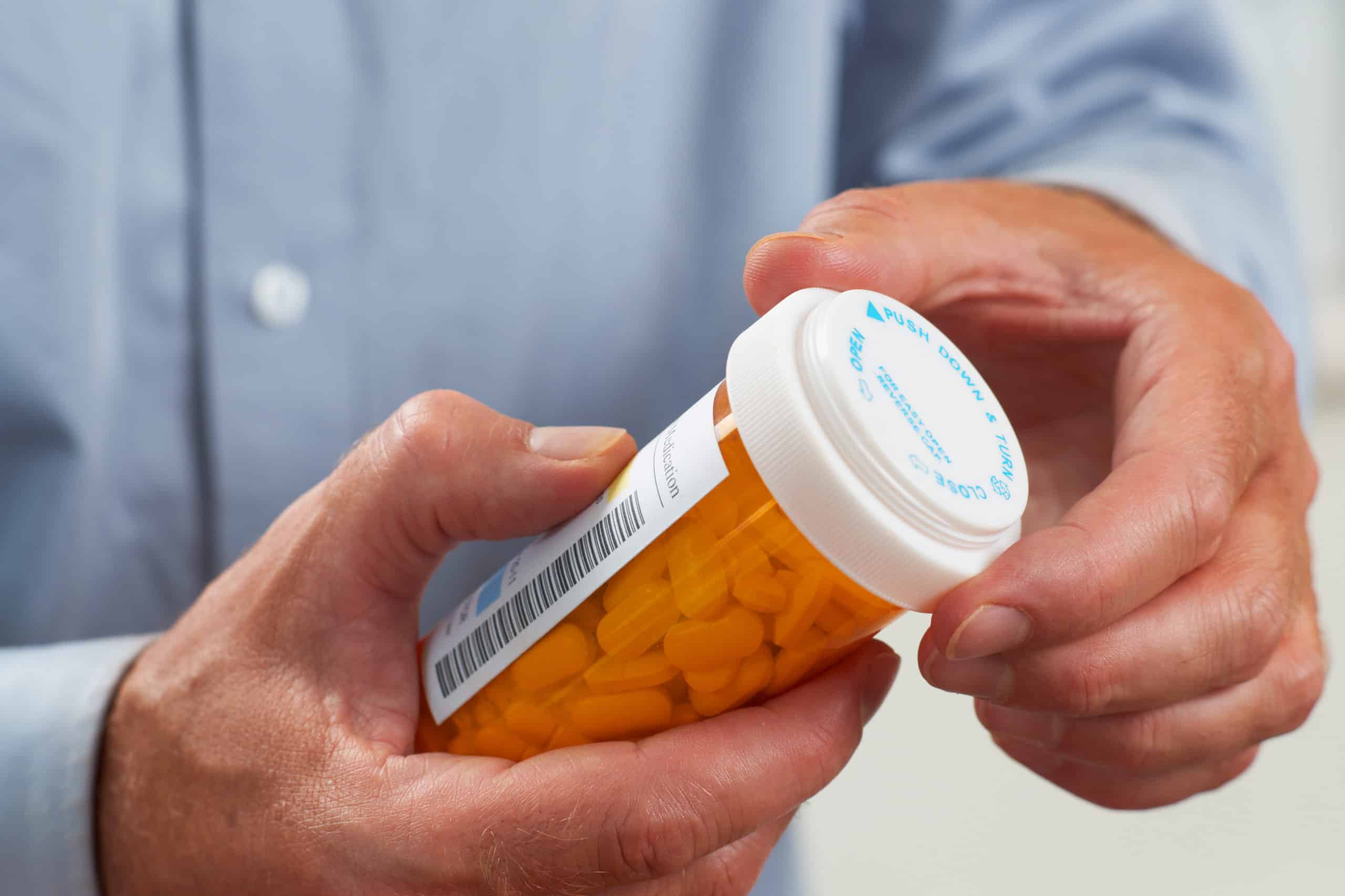
Prescription Drug Abuse Treatment in Cincinnati, Ohio
- What are Prescription medications and what constitutes Drug Abuse?
- What are the categories of Prescription Drugs that are commonly abused?
- Risk factors to consider that can contribute to Prescription Drug Abuse
- How to identify the signs and symptoms of someone who has an addiction to Prescription Drugs
- Myths and Misconceptions surrounding Prescription Drug Abuse
- Thirteen Principles of Effective Drug Addiction Treatment
- Get Help
- Request a Call
Studies have shown with the increase in prescription drug abuse, there is an increasing demand for addiction services. Some individuals suffering from drug abuse are finding it difficult to recover alone and the help of addiction recovery specialists and intensive prescription drug rehab are required.
According to the National Conference of State Legislatures (NCSL), prescription drug abuse is the fastest growing form of drug abuse since 2010. Prescribed substances can pose a harmful threat to users through unexpected health and safety related consequences.
OR:
Request a Call

Prescription drug abuse is one of the most intense and dangerous diseases affecting many today. At Hotel California by the Sea Ohio, our rigorous inpatient and outpatient programs allow patients the time, safety and space to recover from their addictions and any co-occurring mental health conditions that may be present. Our holistic approach offers targeted prescription drug abuse treatment care to address every aspect of our patient’s addiction.
What are Prescription medications and what constitutes Drug Abuse?
The most common classes of medication misused are prescription drugs such as opioids, depressants and stimulants. Those who misuse the drug find it easier to justify their actions because the substances have been prescribed by a medical professional and therefore are safer and more acceptable. Prescription drugs are often much cheaper and more accessible compared to illicit substances.
Prescription drug abuse is defined by ingesting a dose of medication different than what is prescribed, taking a prescription belonging to another person, or taking a medication for its euphoric feelings. There are three popular categories of commonly abuse prescription medications:
- Opioids – Heroin
- Depressants – Xanax, klonopin, valium
- Stimulants – Meth, Adderall, Cocaine
Studies have shown the risks of prescription medication abuse are far greater than what patients expect from a legally prescribed substance. Prescription medications are amongst the most easily and widely abused substances in the United States.
What are the categories of Prescription Drugs that are commonly abused?
When a prescription medication is used in a manner other than intended, it is drug abuse. The main general classifications of commonly abused prescription drugs fall into the following categories: opioids, stimulants and depressants. Addiction to these drugs can be just as dangerous if not more dangerous than illicit drugs due to the ease of access, a similar structural and chemical make up and the same desired sensations you feel after taking the substances.
Opioids
Opioids are prescription painkillers and are normally used to treat patients experiencing severe pain. It is highly effective and can easily become highly addictive. Some commonly known addictive opioids include codeine, fentanyl, hydrocodone and oxycodone. These powerful substances produce a pleasurable sensation in the brain and body, in which many people become easily addicted to and reliant upon to “feel good.”
Stimulants
Prescription stimulant drugs are medications used to treat conditions such as attention deficit hyperactivity disorder (ADHD). Stimulant drugs are meant to stimulate alertness, attention and energy by increasing brain activity chemicals like dopamine. Also a highly addictive class of substances, the misuse of stimulants even for a short period of time can result in psychological symptoms such as psychosis and paranoia. The most common stimulants used are Adderall, methylphenidate and cocaine.
Depressants
Central nervous system depressants are another highly addictive category of prescription medications also known as benzodiazepines. These medications are usually used to treat people suffering from severe anxiety, panic disorder and a variety of other health conditions including symptoms of seizures. Depressants are substances that slow down brain activity resulting in a calming and relaxing effect. This often leaves patients less attentive to their abuse nature. Some of the more popular prescription depressants include: Ativan, Valium and Xanax.

Risk factors to consider that can contribute to Prescription Drug Abuse
Leading risk factors for prescription drug abuse and addiction include: genetic and family history, social and cultural influences, as well as any mental health conditions that may be present. These elements individually or in combination with each other produce a higher likelihood for individuals to use prescription drugs, abuse prescription drugs and even become addicted to prescription drugs.
Biology, Genetics, and Family History
Genetics, biological predisposition and family history play a huge contributing factor to the risk for substance and prescription drug abuse. Research has found that there are a handful of genes that are directly linked to the development of a substance addiction. And when multiple problematic genes are interacting with each other, this can pose an even greater risk for substance abuse. Many of these genes can also be passed down from generation to generation. All of these factors should be taken into consideration when evaluating risk factors for prescription drug addiction.
Age and Social Influences
Another risk factor to take into consideration when addressing a prescription drug addiction is the age of the individual along with social and cultural influences. Statistics show young people are more likely to participate in activities that glorify excessive drug usage. This is in efforts to be accepted into certain social groups. In other instances, individuals may be surrounded by an environment where they regularly see drug usage as a normal and socially acceptable activity. This ultimately leads them to believe that this type of behavior and lifestyle is OK.
Mental Health Conditions
When individuals misuse drugs as a form of self-medication to help them manage and cope with distressing emotions, they are usually also experiencing co-occurring mental health conditions. These drugs help the individual alleviate the uncomfortable symptoms of their mental health disorder. Mental health disorders cause changes in cognitive functions and behaviors that can lead to high risks of substance addiction. Individuals will begin to use these prescription drugs more often and in larger doses in order to achieve their desired effects in suppressing the negative symptoms of their mental health illness.
How to identify the signs and symptoms of someone who has an addiction to Prescription Drugs
The signs and symptoms of prescription drug abuse can be varied depending on the type of drugs being abused. Some of the most common signs include: poor coordination, feelings of euphoria or feeling high, issues with insomnia, agitation and paranoia. Those who have become addicted will begin to use more and at a higher dosage in order to achieve the same effects because they have built up a tolerance for the medication. Another sign to look for is excessive mood swings and poor judgment and decision-making skills. Because prescription drug abuse can physically alter the brain anatomy, this eventually leads to impairment in normal brain functions and the ability to make rational cognitive decisions.
Myths and Misconceptions surrounding Prescription Drug Abuse
Prescription drugs and illicit drugs often have very similar if not the same chemical structures resulting in the same desired effects. Because of this, the notion that prescription medications are safer because they are vetted by a medical doctor and come from a pharmacy, is a huge misconception. Another common misconception about prescription drugs is that individuals who develop a physical dependence on the drug, also develop an addiction to the drug. Both events can affect the same person but addiction and physical dependence are actually two different components of prescription drug abuse.
Are Prescription Drugs safer than illicit Drugs?
One large misconception about the misuse of prescription drugs is many people believe they are much safer to use simply because they have been prescribed by a medical professional. However, it doesn’t mean these drugs are less dangerous or addictive. In fact, prescription drugs can have the same potential to be just as harmful and addictive as other illicit drugs. Because of their similar chemical structures, both prescription and illicit substances produce the same desired effects on the body.
Is a physical dependence and addiction the same thing?
It is often a misconception that a physical dependence to drugs and an addiction to drugs are the same. They are actually two different types of conditions. Addiction is defined as the inability to stop using harmful substances despite the negative outcomes related to personal and professional obligations. Addiction usually takes a greater emotional toll on the user affecting his or her mental status. A physical dependence is when a user’s body quickly adapts to the substance and is unable to properly function once the drug has been removed from its system. This usually leads to serious withdrawal symptoms in which individuals will need medication-assisted treatments. Though individuals who suffer from prescription drug abuse often experience both addiction as well as physical dependence, it is possible for a person to experience the physical aspect without experiencing the mental and emotional effects of a drug addiction.

Thirteen Principles of Effective Drug Addiction Treatment
At Hotel California by the Sea Ohio, we offer a comprehensive treatment program for anyone suffering from prescription drug abuse. Patients can expect to receive targeted and individualized treatment options through drug detox, residential services and outpatient programming. Medically managed treatments, individual and group therapies and access to life skill building services are available to our patients throughout their recovery. We are here to guide you throughout each phase of your recovery as you work towards an independent life free of your drug and alcohol addiction.
Specialized therapies for Prescription Drug Abuse
We believe in order to successfully recover from a prescription drug addiction, treatment must target both physical and psychological conditions related to the disease. We believe in a holistic approach to treatment and implement several types of behavioral therapies in addition to any medically managed treatments. Some of our specialized substance abuse therapies include:
- Cognitive Behavioral Therapy (CBT)
- Dialectical Behavioral Therapy (DBT)
- EMDR (Eye movement desensitization reprocessing therapy
- Marriage and Family therapy
These therapeutic methods either individually or in combination with each other help patients uncover the underlying root cause of their addiction or help treat any co-occurring mental health conditions that may be present.
Client-Specific Treatments
Upon initial admittance into our prescription drug rehab program, each patient will be given a full biopsychosocial assessment and assigned a team of clinical professionals. This team includes medical physicians, psychiatrists, therapists and a case manager. It is important to take into consideration each patient’s entire history in order to create a customized and targeted plan to meet his or her specific needs for treatment. There is no one size fits all approach to prescription drug abuse treatment. Each of our patients will receive a comprehensive treatment plan unique to their strengths and struggles.
Many of our patients come to our prescription drug rehab with past trauma, career burnout or co-occurring mental health conditions. Our prescription drug rehab program specializes in treating those with a dual diagnosis. Our evidence proven therapies such as CBT and EMDR therapy are extremely effective in helping patients address mental health issues such as trauma, depression and anxiety. Every patient deserves the dedication and knowledge of our experienced rehab team to successfully recover from their addictions.
Pain Management Treatments
Those who are seeking treatment for prescription drug abuse can often experience both physical pain from withdrawal symptoms and emotional pain resulting from co-occurring mental health conditions. At Hotel California by the Sea Ohio, therapists and psychiatrists are available weekly or as often as patients need, in order to address any emotional distresses they are experiencing. For our detoxing patients, medications and other methods of withdrawal management can be implemented to help with the discomforts the body may feel. We provide an unparalleled addiction treatment experience by ensuring the comfort and safety for all of our patients.
Prescription Drug Abuse Levels of Care
At our treatment facilities in the Cincinnati and Blue Ash area, we offer a variety of solutions and treatment options for individuals suffering from a prescription drug addiction. Clients can choose from multiple levels of care including detox, inpatient residential programming, partial hospitalization programming (PHP), and intensive outpatient programming (IOP). In addition to our inpatient and outpatient services, we also offer specialized services including marriage and family support services, educational and career assistance programs, as well as sober transitional housing services. We help individuals from all backgrounds recover from addiction to opiates, stimulants, depressants, and other prescription drugs.
Get Help
Hotel California by the Sea Ohio offers individualized treatment programs for prescription drug abuse through multidisciplinary approaches. Our levels of care range from detox and medication assisted treatments, residential treatment, and outpatient programming. Reach out to our admissions team today to learn about our unique behavior treatment therapies and specialized programs targeting co-occurring mental health conditions. Those who suffer from prescription drug abuse do not have to do it alone. Our team of caring and experienced rehab professionals will guide you through every step of your recovery process.
Request a Call
The road to recovery is full of uncertainty, leave your worries behind…
Our compassionate staff will answer all of your questions without any pressure. Learn about our evidence-based drug addiction treatment and rehab, the ease of entering our program, and the benefits of getting help from a reputable addiction treatment facility like Hotel California by the Sea.
Every member of our admissions team has been where you are today – be sure to ask them about their journey!






